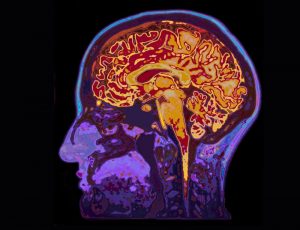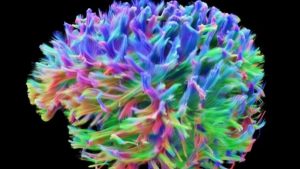Jul
11
2017
 I love a good unsolved mystery as much as anyone. Mysteries provoke curiosity, and challenge our investigative skills. They may also challenge our skepticism and critical thinking.
I love a good unsolved mystery as much as anyone. Mysteries provoke curiosity, and challenge our investigative skills. They may also challenge our skepticism and critical thinking.
The story of Amelia Earhart is an iconic mystery, and the inspiration for both legitimate investigation and a lot of nonsense. The story of Earhart is in the news again. The History Channel is promoting a theory that Earhart, and her navigator (Fred Noonan) were captured by the Japanese and later died in prison. Their new alleged evidence for this is the above photograph.
Some Quick Background
Earhart is famous for being a female aviation pioneer. She had many firsts, including being the first person to fly solo across the Pacific from Honolulu to Oakland, California. This in itself was enough to make her famous, but her disappearance on July 3, 1937 made her legendary. She was attempting to fly around the globe, starting and ending in Miami, Florida. She made it as far as Papua, New Guinea.
Continue Reading »
Jul
10
2017
 While we are still trying to sort out exactly what processes and networks in the brain create consciousness, we are also still uncertain why we are conscious in the first place. A new study tries to test one hypothesis, but before we get to that let’s review the problem.
While we are still trying to sort out exactly what processes and networks in the brain create consciousness, we are also still uncertain why we are conscious in the first place. A new study tries to test one hypothesis, but before we get to that let’s review the problem.
The question is – what is the evolutionary advantage, if any, of our subjective experience of our own existence? Why do we experience the color red, for example – a property philosophers of mind call qualia?
One answer is that consciousness is of no specific benefit. David Chalmers imagined philosophical zombies (p-zombies) who could do everything humans do but did not experience their own existence. A brain could process information, make decisions, and engage in behavior without actual conscious awareness, therefore why does the conscious awareness exist?
This idea actually goes back to soon after Darwin proposed his theory of evolution. In 1874 T.H. Huxley wrote an essay called, “On the Hypothesis that Animals are Automata.” In it he argued that all animals, including humans, are automata, meaning their behavior is determined by reflex action only. Humans, however, were “conscious automata” – consciousness, in his view, was an epiphenomenon, something that emerged from brain function but wasn’t critical to it. Further he argued that the arrow of cause and effect led only from the physical to the mental, not the other way around. So consciousness did nothing. We are all just passengers experiencing an existence that carries on automatically.
Continue Reading »
Jul
07
2017
 The world is horrifically complicated and humans have developed a number of strategies to deal with that complexity. These strategies are necessary but imperfect. There is also always a trade-off, sacrificing detail and nuance for understandability.
The world is horrifically complicated and humans have developed a number of strategies to deal with that complexity. These strategies are necessary but imperfect. There is also always a trade-off, sacrificing detail and nuance for understandability.
One such strategy I have written about often is the need for simplicity. A saying, attributed to Albert Einstein with good references, goes: “Everything should be as simple as it can be, but not simpler.” He was talking about the art of making complex scientific knowledge accessible without making it wrong. Unfortunately, the desire for simplicity often leads to oversimplification, with important details and concepts lost or distorted.
There is another related strategy psychologist call the need for cognitive closure. One reference defines this need as:
“As a dispositional construct, the need for cognitive closure is presently treated as a latent variable manifested through several different aspects, namely, desire for predictability, preference for order and structure, discomfort with ambiguity, decisiveness, and close-mindedness.”
It is easy to see the trade-offs here. On the one hand it is good to be intellectually flexible, open-minded, and comfortable with ambiguity and uncertainty. Yet, this disposition can predispose one to indecisiveness, the “paralysis of analysis.” At some point we have to commit, even if tentatively. Structure and order in thought can also be positive things.
Continue Reading »
Jul
06
2017
 Cardiff University has released its latest scans of the wiring of the human brain. This now adds to a similar project in the US funded by the NIH.
Cardiff University has released its latest scans of the wiring of the human brain. This now adds to a similar project in the US funded by the NIH.
The result is a stunning image of all the axons in the human brain – the wires that conduct signals and form networks and connections to other parts of the body. In addition to these wires there are also the neurons, which are the cell bodies of which the axons are part, and the glia, which are other cells in the brain that serve support functions but also play a role in modulating neuronal function.
These wiring images are part of various connectome projects – attempts at fully mapping all the connections within the human brain and their functions. These latest images from Cardiff are the result of the Siemens 3 Tesla Connectome MRI system. Essentially we are seeing the result of advances in both hardware and software technology.
The MRI scanners themselves are on the more powerful side. The “3 Tesla” refers to the power of the magnet. A typical hospital MRI scanner operates at 1.5 Tesla or 3 Tesla. There is a 10.5 Tesla MRI unit at the University of Minnesota which is used for the NIH connectome project. So 3 Tesla is a powerful MRI scanner, but no more so than the more powerful typical clinical MRI scanners.
Continue Reading »
Jul
03
2017
 Florida just passed a bill designed to challenge the teaching of evolution, climate change, and other “controversial” science in the classroom. This represents the evolution of such laws promoted by those opposed to the teaching of evolution.
Florida just passed a bill designed to challenge the teaching of evolution, climate change, and other “controversial” science in the classroom. This represents the evolution of such laws promoted by those opposed to the teaching of evolution.
In the past century there have been a number of such state laws passed in the US, most of which have been struck down by Federal courts, including The Supreme Court, as a violation of the separation of church and state. These including banning the teaching of evolution, requiring the teaching of “creation science”, teaching the controversy, and teaching creationism’s alter-ego, Intelligent Design.
Essentially these are all attempts to force or allow schools to determine what is taught in the public school science classroom not by the current scientific consensus but by the prevailing religious beliefs of the community. The string of legal defeats has not stopped efforts to oppose the teaching of evolution. Rather deniers have simply tried to craft laws to get around the pesky first amendment.
Continue Reading »
 I love a good unsolved mystery as much as anyone. Mysteries provoke curiosity, and challenge our investigative skills. They may also challenge our skepticism and critical thinking.
I love a good unsolved mystery as much as anyone. Mysteries provoke curiosity, and challenge our investigative skills. They may also challenge our skepticism and critical thinking.
 While we are still trying to sort out exactly what processes and networks in the brain create consciousness, we are also still uncertain why we are conscious in the first place. A new study tries to test one hypothesis, but before we get to that let’s review the problem.
While we are still trying to sort out exactly what processes and networks in the brain create consciousness, we are also still uncertain why we are conscious in the first place. A new study tries to test one hypothesis, but before we get to that let’s review the problem. The world is horrifically complicated and humans have developed a number of strategies to deal with that complexity. These strategies are necessary but imperfect. There is also always a trade-off, sacrificing detail and nuance for understandability.
The world is horrifically complicated and humans have developed a number of strategies to deal with that complexity. These strategies are necessary but imperfect. There is also always a trade-off, sacrificing detail and nuance for understandability. Cardiff University has released its
Cardiff University has released its  Florida just
Florida just 




